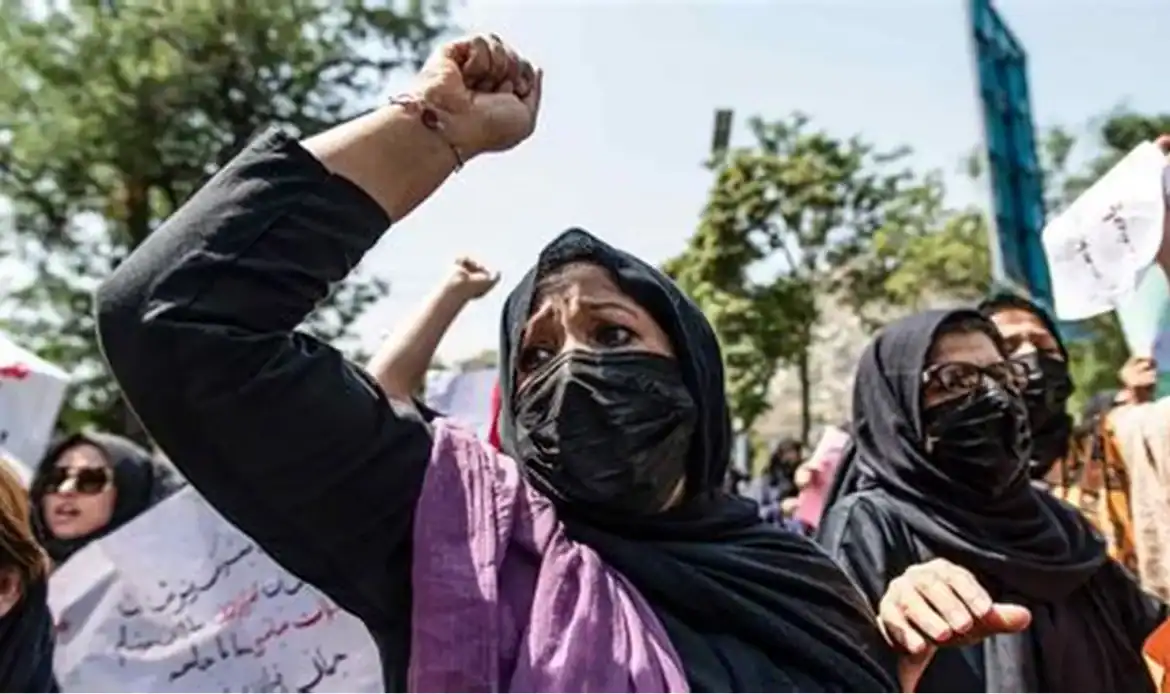
One year ago, on 25 September 2024, Australia, Canada, Germany, and the Netherlands announced their intention to hold Afghanistan accountable for violations of women’s and girls’ rights under CEDAW. The initiative has the potential to culminate in a case before the International Court of Justice (ICJ), which would mark a historic step in ensuring that the Taliban answer for stripping away women’s rights and breaching Afghanistan’s international obligations.
In relation to the announcement by the four countries, Germany organized a series of consultations with Afghan women’s rights defenders; one was held virtually in September 2024 and a second was held in person in Berlin in March 2025. The message from the Afghan human rights community following the second consultation was clear and consistent. It called on the leading states to: continue engaging in safe and meaningful consultations with diverse Afghan communities, while ensuring inclusive participation of Afghan women in the process; commit to transparency, while creating awareness about the process; and build broad-based support for the process, including from the Global South and Muslim-majority countries.
Over the past year, there have been significant developments with regard to gender violations in Afghanistan. On 4 October 2024, the Court of Justice of the European Union (CJEU) ruled that the cumulative impact of the Taliban’s discriminatory measures toward Afghan women amounts to persecution, thus justifying their recognition as refugees solely based on their gender and nationality. In June 2025, the United Nations CEDAW Committee conducted the first treaty body review of Afghanistan since the Taliban takeover in 2021. In its review, the CEDAW Committee urged the de facto authorities to restore constitutional and legislative protections for women’s rights, reinstate anti-discrimination laws, and cooperate fully with international accountability mechanisms, including the International Criminal Court (ICC) and ICJ. It also called for: remedies and reparations for survivors of gender-based violence and gender persecution; immediate reforms to prevent further violations; regional actors not to legitimize discriminatory frameworks; and encouraged support for Afghan civil society and women’s rights groups in exile.
Additionally, on 8 July 2025, the ICC issued arrest warrants for Haibatullah Akhundzada (Supreme Leader of the Taliban) and Abdul Hakim Haqqani (Chief Justice of the Taliban), for the crime against humanity of gender persecution under Article 7(1)(h) of the Rome Statute. Per the ICC’s press release, these charges were based on the Taliban’s targeting of women, girls, and “other persons non-conforming with the Taliban’s policy on gender, gender identity or expression, and on political grounds against persons perceived as ‘allies of girls and women.’” These measures complement the efforts to bring an ICJ case under CEDAW that focuses on state-level responsibility for violations of international human rights law.
On the anniversary of the announcement by Australia, Canada, Germany, and the Netherlands, we, the members of the Expert Working Group (EWG) and Afghan and international civil society organizations call on these four states to: (1) reinforce their commitment to this critical initiative; (2) to translate their words into action by providing further transparency about the ongoing process; and (3) to ensure meaningful engagement with Afghan women, survivors, and civil society. As women of Afghanistan continue to suffer increasing violence and restrictions, we are concerned that there is a growing trend of normalizing the Taliban. Increased transparency around the process would go a long way in helping restore trust in the initiative. Moreover, restoring women’s rights in Afghanistan requires coordinated and principled action from a strong alliance of diverse stakeholders committed to women’s human rights and dignity.
Finally, we strongly call upon other states to join and support the ICJ initiative, including those from the Global South and members of the Organization of Islamic Cooperation (OIC). Increased international support for the potential ICJ case will send a strong message of hope to women and girls in Afghanistan at a time when they most need it.
The Expert Working Group on the Potential Case(s) for Afghanistan at the International Court of Justice (ICJ) is an Afghan-led forum that brings civil society actors, legal experts, survivor advocates, and organizational leaders together. It seeks to coordinate strategic and principled collaboration to enable the initiation of future case(s) and advocacy with current applicant states, develop legal and advocacy materials, and influence decision-making on the case(s), ranging from shaping public messaging to supporting states in advancing legal proceedings before the Court. The Group also aims to amplify the voices of affected communities, build sustained support for justice and accountability, especially for women, girls, and other marginalized groups, and ensure coordination with wider international accountability efforts on Afghanistan.
Signatories:
Expert Working Group on the Potential Case(s) for Afghanistan at the International Court of Justice (ICJ)
Centre for Dialogue and Progress- Geneva (CDP-G)
Rawadari
Rights Monitor Media (RM Media)
Conflict Analysis Network (CAN)
International Service for Human Rights (ISHR)
Afghanistan Transitional Justice Coordination Group
Women’s Rights First
Shahmama
Center for Human Rights Advocacy (CHRA)
Women’s Movement for Equality
A Better Future for Women
Human Rights Watch (HRW)
Afghanistan Women’s Movement for Justice and Freedom
Farkhunda Media
Spontaneous Movement of Protesting Women in Afghanistan
Coalition for the Prevention of Hazara Genocide (CPHG)
Afghanistan Human Rights and Democracy Organization (AHRDO)
The Rahyab Initiative
Human Rights Defenders Plus (HRD+ )
Afghanistan LGBTIQ+ Organisation (ALO)
Organization for Policy Research and Development Studies (DROPS)
HAMRAH Initiative
Femena
Sisterhood and Solidarity
Radio Farageer
hūmānus
MADRE


